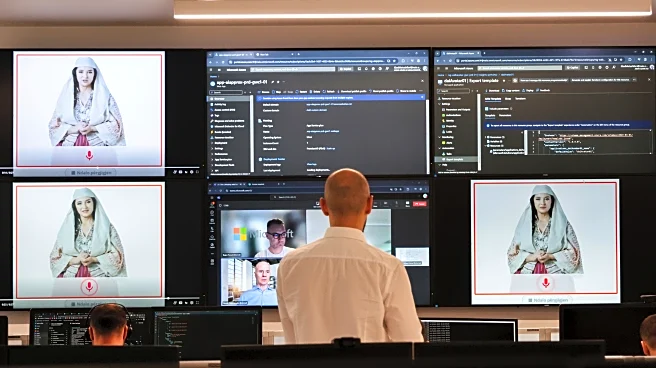What's Happening?
Electronic Arts (EA) is facing scrutiny over its pending $55 billion sale to a consortium led by Saudi Arabia's Public Investment Fund, Silver Lake, and Affinity Partners. The company has acknowledged
potential risks associated with the merger, including the impact on its ability to attract and retain talent. Concerns have been raised about the influence of the new ownership on EA's creative direction, particularly regarding inclusivity and representation in its games. Despite these concerns, EA has assured that it will maintain creative control and uphold its cultural values. The sale is expected to close in 2026, and EA is preparing for potential challenges, including possible mass layoffs and studio closures.
Why It's Important?
The sale of EA to a consortium including Saudi Arabia's Public Investment Fund is significant due to the potential impact on the gaming industry and EA's internal culture. The deal, being the largest leveraged buyout in history, raises questions about the future of EA's creative freedom and its commitment to diversity. Employees and fans are concerned about possible changes in the company's approach to game development, which could affect EA's reputation and market position. The involvement of Saudi Arabia, given its human rights record, adds a layer of complexity to the transaction, potentially influencing public perception and employee morale.
What's Next?
As the sale progresses, EA will need to navigate potential legal and regulatory challenges. The company may face lawsuits from its board of directors and concerns from public stockholders. Additionally, EA must address employee concerns and manage the transition to new ownership while maintaining its creative vision. The gaming community and industry stakeholders will be closely monitoring the situation, particularly regarding any changes in EA's game development practices and corporate culture.
Beyond the Headlines
The sale of EA to a consortium with ties to Saudi Arabia highlights broader ethical and cultural implications. The potential influence of the new ownership on EA's creative decisions could lead to shifts in the gaming industry's approach to inclusivity and representation. This development also underscores the growing intersection of global politics and business, as companies navigate complex international relationships and cultural values.









